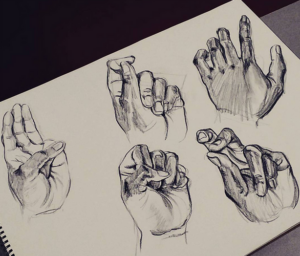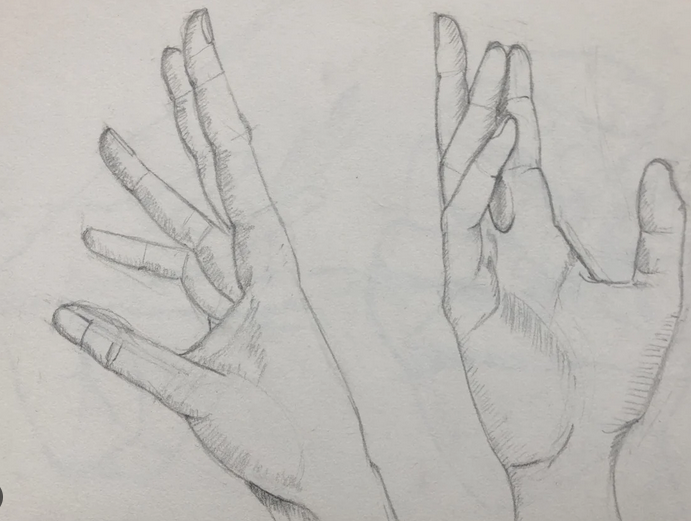Finger drawing or finger portrait techniques elevate artistry, allowing tactile engagement with the canvas, and unlocking a world of creativity through direct, hands-on expression. Finger portrait stands out as a tactile and intuitive technique that invites creators to engage with their medium in a direct and personal way. This guide serves as your introduction to the world of finger drawing, offering insights into the techniques, materials, and boundless creative opportunities that come with using your fingers as your primary artistic tool.

Unleashing Creativity Through Finger Drawing Techniques
Understanding Finger Drawing
To begin with, finger portrait is an art form that transcends traditional tools, relying solely on the fingers to create lines, textures, and shades. This hands-on approach adds a layer of immediacy and connection between the artist and their canvas.
Tactile Joy of Finger Drawing
One of the unique aspects of finger drawing is the joy of direct contact with the artistic surface. The tactile sensation of feeling the texture of the canvas or paper beneath your fingertips adds an intimate and sensory dimension to the creative process.
Techniques and Materials
Basic Finger Drawing Techniques
Explore fundamental finger drawing techniques such as blending, smudging, and shaping. These techniques allow artists to create a diverse range of effects, from soft gradients to bold strokes.
Versatility in Mediums
Finger drawing is remarkably versatile and can be done with various mediums. Dive into the world of finger painting with vibrant colours or experiment with the subtlety of charcoal and graphite. The possibilities are as diverse as your imagination.
Choosing the Right Materials
Discover the materials that complement finger portraits, from canvas and paper to specialized papers designed for tactile engagement. Understanding the right materials ensures a seamless and enjoyable creative process.
Simple Exercises for Beginners
Embark on your finger drawing journey with easy exercises designed for beginners. These exercises help build confidence, develop motor skills, and introduce you to the expressive power of finger drawing.
Building a Foundation
As a beginner, focus on building a foundation in hand painting. Learn how to control pressure, experiment with strokes, and gradually explore more complex techniques as you gain confidence in your abilities.
Advanced Techniques and Artistry
Elevating Your Finger Drawing
For those seeking to push the boundaries, explore advanced hand painting techniques. Create intricate details, experiment with layering, and develop a distinctive style that reflects your artistic vision.
Finger Drawing in Fine Art
Witness the integration of finger drawing in the realm of fine art. Explore the works of accomplished artists who have embraced finger drawing as a legitimate and expressive form of artistic creation.
The Therapeutic Aspect of Finger Drawing
Artistic Therapy
Discover the therapeutic benefits of finger drawing. Engaging in this tactile art form can serve as a form of relaxation, stress relief, and a way to channel emotions into creative expression.
Mindfulness Through Finger Drawing
Experience the meditative qualities of hand painting, allowing your mind to focus on the rhythmic and repetitive movements. It becomes a mindful practice that connects body and mind.
Conclusion
In conclusion, finger drawing techniques open a doorway to a world of artistic exploration. Finger drawing, a tactile delight, transforms blank canvases into vibrant stories, merging touch and artistry to create captivating masterpieces. Whether you are a seasoned artist or a curious beginner, the tactile joy, versatility, and therapeutic benefits of finger drawing await. Embrace the immediacy of expression that comes with using your fingers as your artistic tools, and embark on a creative journey filled with endless possibilities. It’s time to let your fingers dance across the canvas and paint a world uniquely your own.

